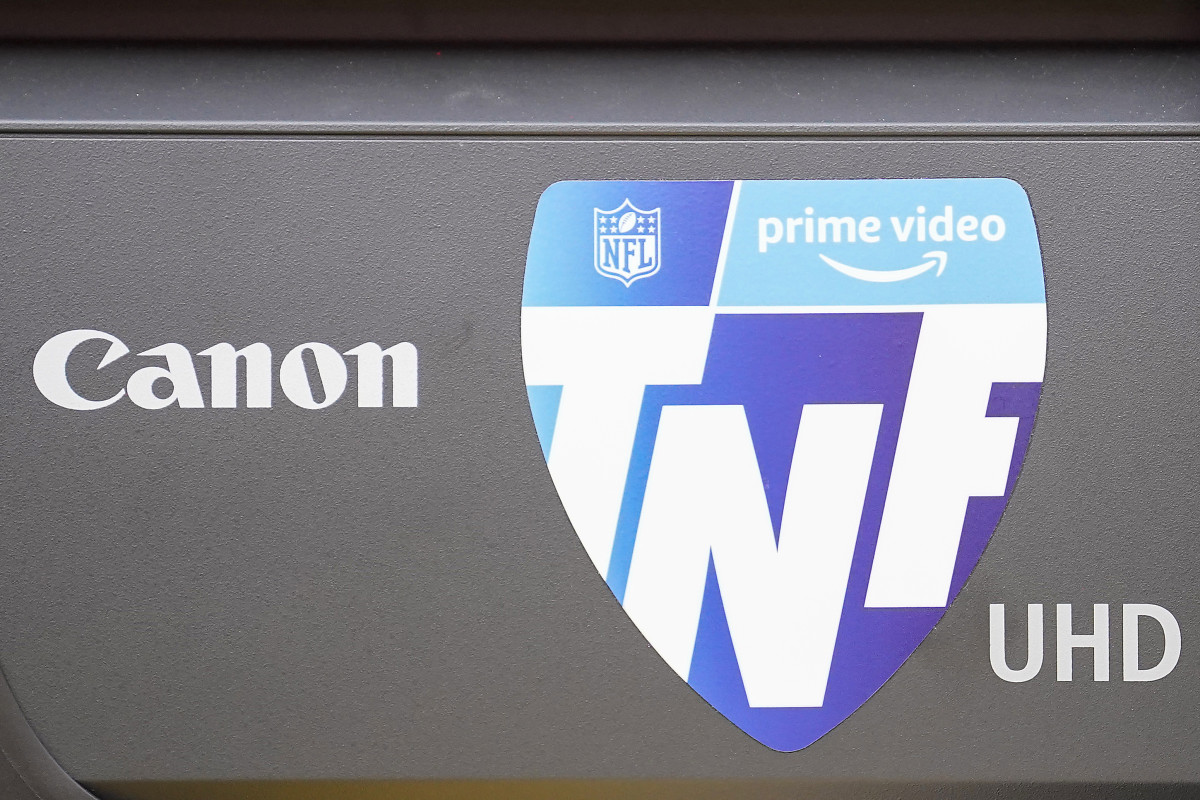The Future of Streaming NFL Games Isn’t Slowing Down Anytime Soon

Last week, NFL owners and league-office and team executives summited in New York at the annual fall meeting and, as usual, how the season has started was atop the agenda.
So how’s it going for you?
It’s a question I thought would be worth asking, given how many changes there have been over the past few years to how fans are being drawn to consume the game. Sunday Ticket is on YouTube TV now. More and more games are being streamed exclusively—including a whole package of Thursday night games on Amazon. And the push into the future won’t slow down anytime soon.

With that in mind, I figured the time was right to track down the person who oversees all of this for the league, NFL chief media officer Brian Rolapp, and ask him questions that have been brought up, both by readers and friends of mine, on the future of pro football on television.
Here’s what we got, in catching up with Rolapp …
Sports Illustrated: The multiview on Sunday Ticket is something a lot of folks have brought up to me, since you could customize what games went into it on DirecTV and you can’t yet on YouTube. Where are you all and YouTube at on that?
Brian Rolapp: We’ve gotten a lot of positive feedback on the multiview. YouTube had been working on that for some time. This is probably a great question for them, but what we understand and why selecting games right now is hard, since they’re clearly looking how to do that, is they are prioritizing job number one—to make sure that the quality of this stream is as high as possible. In other words, they’re making sure that with the compression of the stream and the different broadband streams that they have to deal with all over for the millions of people watching it that it doesn’t buffer and it doesn’t pixelate and that it’s at the highest picture quality as possible. That’s what they’re prioritizing. My understanding is once you start introducing customization, that could put that in jeopardy. They want to get that right and then tackle customization at some point.
SI: Is there anything you really like about how [YouTube has] attacked Sunday Ticket thus far?
BR: Big picture, the reason broadcast and linear television has been so good for the NFL is that it’s been the best technology to aggregate at high quality to 25, 30 million, 15 million people at one time. The architect is technically broadcast—one stream, many homes, really efficiently. The internet is one stream, one home. The question in the industry has been for some time, can the industry scale to accommodate that many concurrent users at one time at high quality like you get on television? The answer is yes, but that’s priority one. You see it on Amazon, you see it on YouTube. The picture is great. The experience is great, and we’re really happy with it. That’s sort of job one through five for anyone who distributes an NFL game, broadcast or not, is making sure that the broadcast and the delivery is of high quality and top notch.
SI: You hear that watching on a stream will eventually enhance how you watch a game. How’s that gonna happen?
BR: It’s taking traditional networks and putting them on streaming platforms. It’s been growing, and I think it will continue to grow. It’s that and the continued partners that we have. I think you also see with streaming what we look at, which is starting to come, and you’ll see more of in the future is, you’re not just restricted by just one channel. A lot of the alt telecasts that have been growing around the league, you see, digital allows that to happen a lot easier because a platform allows it. You see what Amazon’s doing a sort of Next Gen stats telecast. They’re doing some stuff with The Shop. They’re doing some stuff with Dude Perfect. Of course, the ManningCast is on linear television, but you’ve got almost infinite shelf space when it comes to digital. You’re not restrained. I think you’ll also see, when it comes to, this is more on the business end, the advertising is such a big part of the game. Now on a digital platform, you’ll be able to experiment with new types of advertising, whether that’s the type of advertising or that’s the ability to target ads.
SI: Have you guys worked at all with the streaming partners on finding ways to allow channel-flipping between platforms?
BR: I do think it’s an issue broader than the NFL. It’s an issue that comes out of this time we’re at, where linear television is existing in a world where there’s increasing streaming platforms and apps. That is causing fragmentation and causing hopping around from different apps and different things. I think a lot of people are trying to figure out how to address that whether it’s the technological layer, so if you’re watching through an Apple TV or watching through a Roku, they’re trying to aggregate and make it easier for you to flip around. There’s that layer. I think the experience is decent in YouTube TV, where if you have YouTube TV and you have multiview, you sort of have in-market and out-of-market. That’s a pretty complete experience. They’re trying to attack it that way. Other cable and satellite operators have their own over-the-top platforms. I think it’s an industry problem. … I should say, it’s an industry challenge that I think will continue for some time.
SI: Do you see a future for à la carte game-buying, like being able to buy single out-of-market games, or a broadcast season ticket for an individual team?
BR: We’ve never liked that model. We haven’t heard a ton of that in our fan research that they want that. We think the value of the product is pretty good. Is there an opportunity for less than all games, maybe. We haven’t seriously talked about à la carte games. That’s nowhere really in our future.
SI: I have heard that small businesses and bars have struggled with the idea of games going to streaming platforms, because they’ll sometimes have to pay tens of thousands of dollars for yearlong subscriptions to put a single game on. Do you worry about that?
BR: We do. And we’re actively trying to solve this problem. One thing we did when we did our partnership with YouTube on Sunday Ticket—who has the consumer or residential rights—with the commercial rights, which is distribution to bars and restaurants, we held those back. We used those to create a new company, which most people probably wouldn’t have heard of because it’s a company that is focused on bars, restaurants, etc., called EverPass, which is actively working to solve this problem and is actively working to figure out a more efficient way to get Sunday Ticket and other sports, especially sports on streaming platforms, to bars and restaurants and small businesses in a really efficient way. That launched this year. We’re distributing Sunday Ticket through it. I think you’ll see a lot of innovation through that. You’ll see other sports that are distributed there. We’re actively working on that in a big way.
SI: Which is a way to ensure all sports leagues are getting the games to bigger audiences, and the small businesses aren’t getting shaken down here, right?
BR: It’s a way for them to efficiently get the sports content they want in an efficient way, in a cost-effective way, especially as it moves to streaming. Back 10 years ago, when all games were on pay television, you could get the local cable operator, satellite operator their package. Just like you got ESPN at home, you could get ESPN and all the games on there in the bar or restaurant. Now ESPN is putting games on ESPN+. Now YouTube has Sunday Ticket. You can’t just do that at Albert Breer’s Bar and Grill. You have to figure this out just like consumers are figuring out. We felt the industry didn’t really prioritize commercial establishments. We said, Well, here’s an opportunity to fix the problem. We want to fix it for not only NFL fans; we want to fix it for all sports fans.
